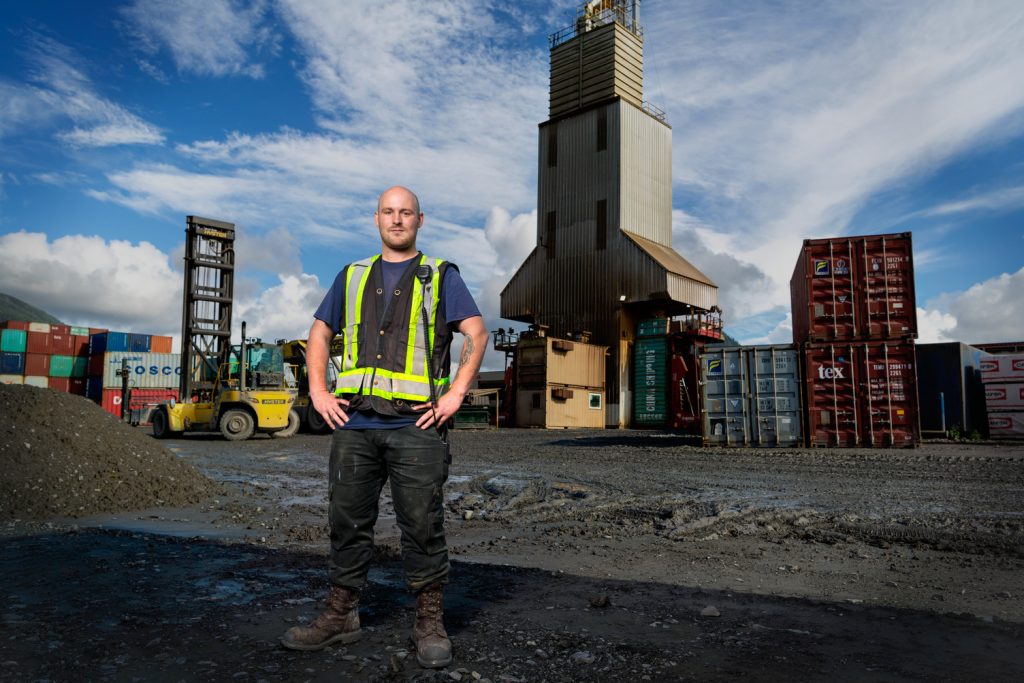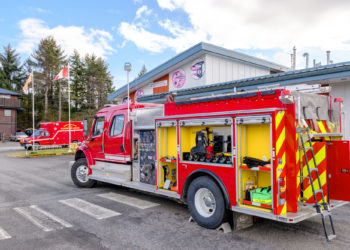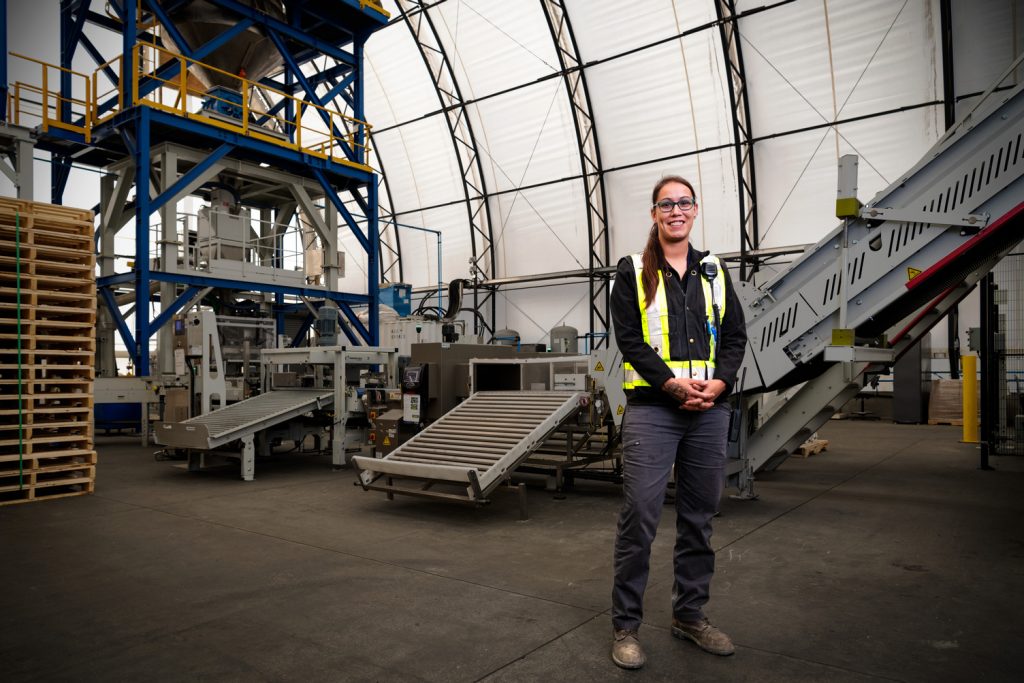Northern B.C. workers are an integral part of innovative Canadian supply chain solutions
Northern B.C. workers are an integral part of innovative Canadian supply chain solutions
Transloading creates jobs and new export opportunities for Canadian producers
December 6, 2021 | IMPRESS
The flow of cargo through the northern B.C. transportation corridor that connects western Canada to the Port of Prince Rupert relies on a skilled workforce that is experienced in transport logistics. Meeting the demands of the different supply chains that depend on the Port involves the ingenuity and dedication of many different teams, who help move goods via truck and train to ship, and vice versa.
There are 3,700 people working for the diverse range of businesses and organizations that make-up the Prince Rupert Gateway; 46 per cent of workers are employed in rail and trucking, supported by another three per cent in logistics and warehousing, who play an important role in both imports and exports, particularly through transloading.
What is transloading? Transloading involves taking cargo out of one mode of transport and placing it in another, to expedite its continued transportation.
In Prince Rupert, several different types of western Canadian agricultural products, forestry products, and plastic resin pellets are transferred from trains and trucks into containers to be shipped from Fairview Container Terminal to customers around the world.
The Port’s largest transloading operation is located on Ridley Island, at Ray-Mont Logistics. Crews at the integrated logistics and container loading terminal handle a variety of these bulk exports for western Canadian producers, transferring the materials directly from rail cars and containerizing them using a few innovative methods.

The newest piece of infrastructure at the site is the high-tech plastic pellet bagging plant. This facility houses two conveyor lines, where plastic resins are unloaded, bagged, labelled and packed onto pallets, before being stuffed inside shipping containers.
Another key part of the terminal’s operation is the Agri-loader, where loads of specialty bulk agricultural crops are emptied from hopper cars into a grain dumper pit and then transferred into shipping containers through an elevator. The process only takes a matter of minutes, with crews working in tandem to turn metal boxes onto their end and pour thousands of kilograms of grain or pulses – like beans, peas and lentils – inside them.
The women and men employed at Ray-Mont take pride in helping support a range of Canadian exporters, and say handling many different types of bulk products brings variety to their work.
“I love the day-to-day experience of working in logistics, because every day is different. I’m presented with new challenges and it keeps me on my toes,” said Operations Supervisor Kathleen Wick.
Bulk Plant Supervisor, Dakota MacDonald, shares a similar outlook. “I’m very happy to come to my job each day, set my mind to whatever task is at hand, rain or shine, and know I’m making an impact,” said MacDonald.
Find out how the Port of Prince Rupert is planning to expand export transloading operations at www.rupertport.com/economic-impact/
See more news

PRPA Welcomes New Vice President of Business Development
Katherine Bamford is joining the Prince Rupert Port Authority as the new Vice President of Business Development. Read More
PRPA Announces Green Wave Award Recipients for Environmental Program’s Record Year
The Prince Rupert Port Authority (PRPA) is honouring five companies for their outstanding participation in the Green Wave program. Read More

